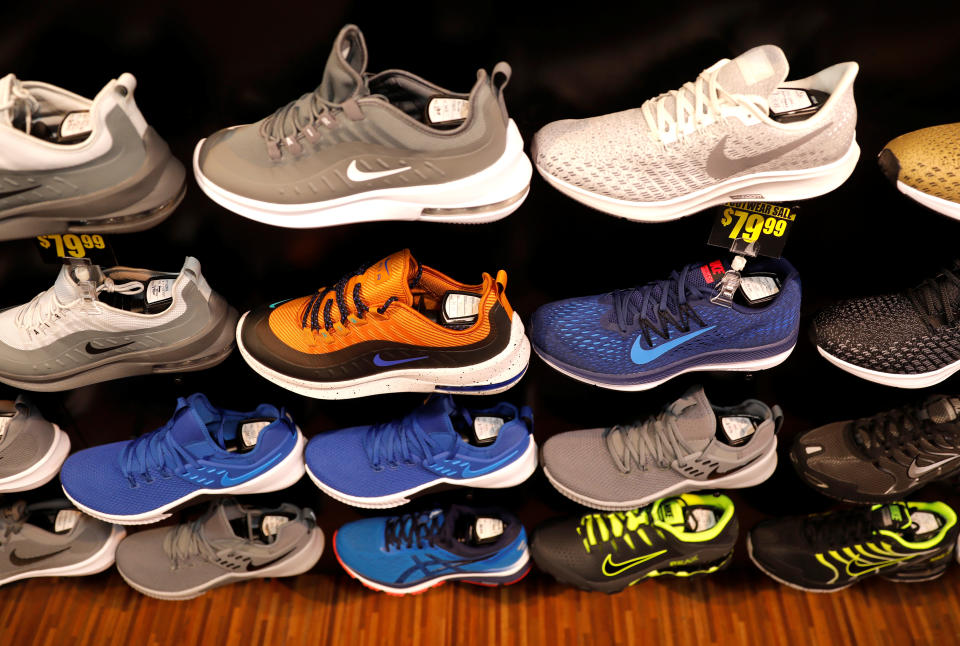Trump just raised your taxes
With far less fanfare than the tax cuts President Donald Trump signed into law in 2017, a series of tax hikes went into effect on September 1 on thousands of everyday items imported from China.
Trump imposed a new tariff of 15% on more than 40% of all consumer products imported from China. That amounts to about $109 billion worth of annual imports, according to research firm Panjiva. On Dec.15, the 15% tariff will be assessed on another $155 billion worth of consumer goods from China. At that point, there will be new Trump tariffs on virtually everything imported from China.
During the last 18 months, Trump imposed 25% tariffs on about $250 billion worth of Chinese imports, but those are mostly component products consumers never see. Those tariffs have led to some price increases, with some importers also taking a hit through lower profits. In some cases, Chinese suppliers have lowered their own prices to offset the tariff. Importers have also begun seeking new suppliers outside China, to avoid the tax.
A $1,000 annual tax on the typical US household
The new Sept. 1 tariffs will take about $16 billion out of Americans’ pockets over the course of a year, if they remain in effect and Chinese import levels remain the same. Add in the Dec. 15 tariffs and the cost of the tax would rise to $40 billion. That’s not a huge hit in a $21 trillion economy, but it does add up. JPMorgan Chase estimates the tariffs already in place and scheduled to go into effect will cost the typical American household more than $1,000 per year.

The new tariffs will apply to thousands of products sold at Walmart (WMT), Target (TGT), Best Buy (BBY), Home Depot (HD), Ikea, Amazon (AMZN) and other retailers. Here are some of the main product categories subject to the new tax, according to Panjiva:
Clothing and footwear such as sneakers, sweaters and baby clothes — $39 billion worth of annual imports
Electronics such TVs, monitors, and audio equipment — $24 billion
Machinery such as printers, desktop computers, hand tools, and air-conditioner parts — $15 billion
Plastic products such as tableware, buckets, and school supplies — $5 billion
Leisure products such as NordicTrack fitness machines — $5 billion
Furniture such as bedding — $1 billion
Price hikes won’t hit consumers right away on every product. Some importers have been stockpiling Chinese imports ahead of the new tariffs, so they’ll be able to sell from non-tariffed inventories for a while. But retailers have been griping about the tariffs nonetheless. A group of more than 200 shoe companies, for instance, recently sent a letter to Trump calling the tariffs a “hidden tax … driving up costs for hardworking American families.”

Most economists say the Trump tariffs alone aren’t enough to cause a recession. But they’re probably slowing overall economic growth. And the latest consumer-sentiment survey by the University of Michigan showed a big drop, largely due to the escalating trade war.
China, in response to Trump’s tariffs, has raised its own tariffs on some U.S. imports, and simply stopped buying some American products, such as soybeans and pork. The trade war is hurting both sides. Trump needs a deal with China to bolster his reelection odds 14 months from now, before the trade war does too much damage to the U.S. economy. But China may wait him out, as American consumers adapt to paying more—and decide whether it will affect their vote in 2020.
Rick Newman is the author of four books, including “Rebounders: How Winners Pivot from Setback to Success.” Follow him on Twitter: @rickjnewman
Confidential tip line: rickjnewman@yahoo.com. Encrypted communication available. Click here to get Rick’s stories by email.
Read more:
The Trump Recession is starting to take shape
Obama was better for your 401(k) than Trump has been
Democrats are blowing it on climate change
Elizabeth Warren is a prophet of doom
Medicare for all won’t work. This might
Read the latest financial and business news from Yahoo Finance
Follow Yahoo Finance on Twitter, Facebook, Instagram, Flipboard, SmartNews, LinkedIn, YouTube, and reddit.


